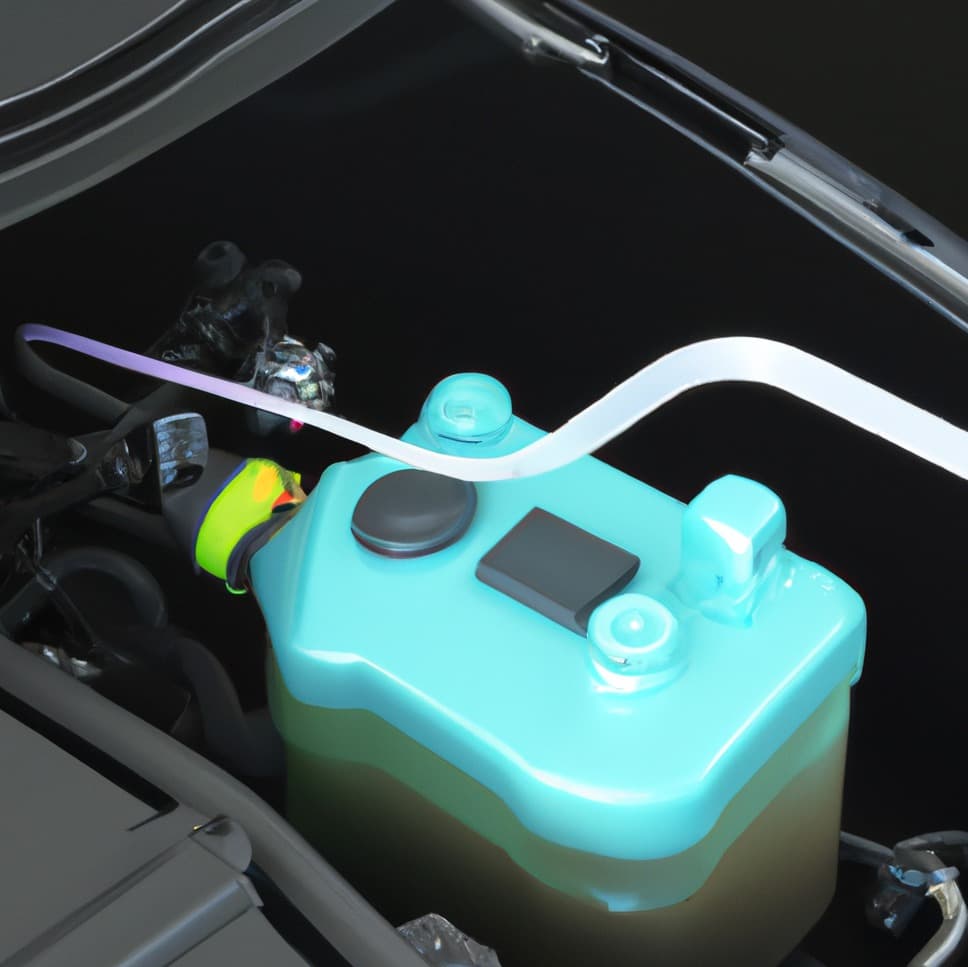Table of Contents
- Understanding Fuel Pumps
- Symptom 1: Reduced Gas Mileage
- Symptom 2: Engine Stalling
- Symptom 3: Difficulty Starting
- Symptom 4: Unusual Sounds
- Diagnosis & Replacement
- Conclusion: Act Promptly
Home » How to tell if you need a new feel pump?
Understanding Fuel Pumps
Understanding fuel pumps is essential for the proper functioning of any vehicle. Fuel pumps are responsible for supplying the engine with pressurized fuel, enabling it to start and run efficiently. Without a properly working fuel pump, vehicles may experience reduced performance or fail to start altogether. This article explains how to tell when you need a new fuel pump, so you can make sure your car remains in good condition and running smoothly.
Fuel pumps generally last between 60,000 and 100,000 miles depending on the type of vehicle they are installed into. But sometimes they fail sooner than that… and sometimes they just don’t fail for a long time. If you are starting to worry about your fuel pump and you think something might be going wrong with it keep reading as we go over the common symptoms of a failing fuel pump.
Symptom 1: Reduced Gas Mileage
When it comes to your car, fuel efficiency is a key factor in its performance. A decrease in gas mileage can indicate something wrong with your vehicle, and the fuel pump could be to blame. This article will discuss symptom 1: reduced gas mileage and how to tell if you need a new fuel pump.
If you feel like your car isn’t getting as much mileage out of each tank as it used to, this could be a sign that your fuel pump is malfunctioning or has failed completely. It may start gradually at first, but the issue will worsen over time until you cannot get any reasonable distance out of even a full gas tank.
The lack of proper pressure from the fuel pump means that the necessary amount of gasoline is not making its way into the engine, thus reducing overall performance.
Symptom 2: Engine Stalling
When a car’s engine stalls, it can indicate something is wrong. As part of the fuel system, the fuel pump is responsible for providing the engine with the gas it needs to run properly. If your vehicle is stalling intermittently or frequently, you may need to replace or repair your fuel pump.
Stalling can occur suddenly and without warning, while driving, or when starting the car. Other symptoms of a faulty fuel pump include difficulty starting your car’s engine in cold weather and frequent surges in RPMs while accelerating or decelerating. These issues should not be taken lightly as they increase the risk of engine damage over time if left unchecked.
If you’re experiencing any of these symptoms, it’s essential to have your vehicle checked by a qualified mechanic right away!
Symptom 3: Difficulty Starting
Regarding your vehicle, there are certain signs you should be aware of that can indicate potential problems. One such sign is difficulty starting the engine. If you’re having trouble getting your car to start, it could point to a faulty fuel pump. In this article, we will explore symptom 3: difficulty starting and how it might signal the need for a new fuel pump.
If your car has been running fine until recently and now won’t start up at all or takes several attempts to get going, this could indicate that your fuel pump is not working correctly. A faulty fuel pump may cause issues with the pressure needed to deliver gasoline from the tank to the engine. This can result in rough or no starts when attempting ignition of the vehicle.
Symptom 4: Unusual Sounds
Having your car break down is one of the worst feelings in the world. Knowing when you need a new fuel pump can help prevent this unfortunate event from happening. One of the signs that you may need to replace your fuel pump is an unusual sound from under the hood.
This sound will be similar to a humming noise that gets louder as you accelerate and quieter as you decelerate. If left unchecked, this noise will become more noticeable and cause further issues with your car’s performance. It’s important to take action once this symptom occurs since it can lead to decreased gas mileage or even complete engine failure if not addressed promptly.
Make sure to bring your vehicle to a certified mechanic right away if you hear any abnormal sounds coming from underneath the hood.
Diagnosis & Replacement
The signs and symptoms of a faulty pump can be hard to miss when it comes to your car’s fuel pump. A failing fuel pump can cause various issues, from engine sputtering and misfires to poor fuel economy and reduced performance. Knowing when you need a new fuel pump can save you time, money, and frustration.
Fuel pumps are responsible for moving gasoline from the tank to the engine. If something is wrong with the fuel pump or its electrical system, it won’t be able to provide adequate pressure for combustion. Diagnosing a faulty fuel pump starts with understanding common symptoms, like an inability to start or difficulty accelerating on hills. Other indicators include increased noise from underneath the vehicle and changes in rpm while idling or driving at higher speeds.
If any of these issues sound familiar, it may be time for a new fuel pump, sad to say….
Conclusion: Act Promptly
When it comes to maintaining a car, one of the most important components is the fuel pump. It ensures that fuel makes it from the tank to the engine and keeps your vehicle running smoothly. But when does it become time to replace a fuel pump? The conclusion is simple: act promptly.
If your car’s performance has declined and you are having trouble starting, you should take it in for an inspection as soon as possible. This is especially true if you hear strange noises from under the hood or notice a gas smell in the interior cabin. In some cases, these can signal that your fuel pump needs to be replaced immediately; however, only an experienced mechanic can determine if this is truly necessary.



